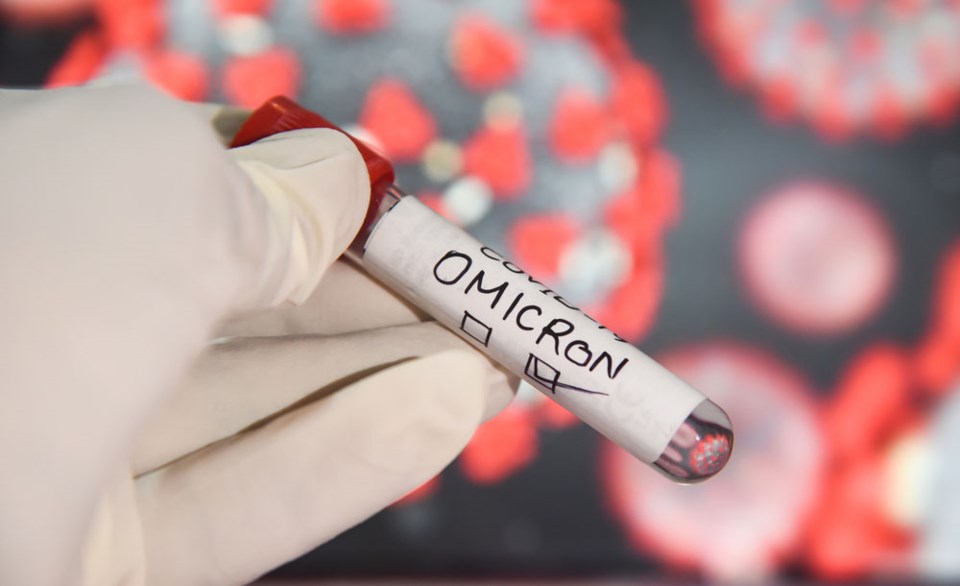COVID-19 case counts and test positivity in New Westminster have dropped again after a one-week uptick.
Between May 29 and June 4, New Westminster saw 14 new cases of COVID, according to the latest B.C. Centre for Disease Control data. That's down from 18 last week, when it had risen from 16 the week before.
Official public case counts don't reflect the actual number of COVID-19 cases in B.C., since the vast majority of people have not been eligible for testing since the beginning of 2022, when case counts shot up dramatically in the face of the original Omicron wave.
BCCDC data about COVID-19 variants shows that Omicron BA.2 and its sub-variants, BA.2.12 and BA.2.3, continue to make up the vast majority of COVID cases in British Columbia.
Provincewide, hospitalization data provides signs of optimism.
The BCCDC said 28 people in B.C. were sick enough to be in the province's hospital intensive care units (ICUs) as of yesterday (June 8). The last time there were so few COVID-19 patients in ICUs was on Aug.10, almost 10 months ago. Back then, the province had 23 such patients.
In all hospital wards combined, there were 325 COVID-19 patients in B.C. hospitals as of yesterday. That number has declined in each of the past four weekly data reports and reflects the lowest total since April 7, nine weeks ago.
Test positivity rates fall in New West, Metro Vancouver
Test positivity rates in New Westminster have also fallen since last week, dropping from 15% to 12%.
That same downward trend is reflected in neighbouring Metro Vancouver municipalities.
In Burnaby, the latest positivity rates (May 29 to June 4) stood at 6% for the city's northeast quadrant, 9% for the southeast, 10% for the northwest and 13% for the southwest. Those numbers are down from 25%, 10%, 22% and 17%, respectively, in the previous week.
The Tri-Cities area ranged from a low of 8% in southwest Coquitlam to a high of 16% in southeast Coquitlam, with North Coquitlam coming in at 9%, Port Moody/Anmore/Belcarra at 13% and Port Coquitlam at 15%.
Who can get a COVID-19 PCR test in B.C.?
Testing for COVID-19 is only available to those who meet the eligibility criteria.
According to the Fraser Health website (as of a June 2 update), testing is recommended for people who have symptoms associated with COVID-19 infection and who fall into one of the following categories:
- People for whom testing is clinically indicated (people who are pregnant, hospitalized or moderately to severely immunocompromised).
- People with conditions that put them at high risk.
- People 70 years of age or older who are fully vaccinated, with three or more chronic conditions that increase the risk of severe illness or hospitalization.
- People 50 years of age and older who are unvaccinated or partially vaccinated and who have three or more chronic conditions that increase the risk of severe illness or hospitalization; or people 50 to 69 years of age who have not yet received their booster dose and have three or more chronic conditions that increase the risk of severe illness or hospitalization; or people age 70 years and older who have not yet received their booster dose and have one or more chronic conditions that increase the risk of severe illness or hospitalization.
- Individuals who self-identify as Indigenous.
- Individuals who live or work in high-risk settings.
Where can I get a COVID-19 rapid test in B.C.?
If you aren't eligible for public testing but you want to know if you have COVID-19, rapid antigen tests are available for free through participating community pharmacies for all adults aged 18+.
To find a New Westminster pickup point near you, check out this list by neighbourhood.
The B.C. Centre for Disease Control is not collecting reports of positive cases from at-home tests, so rapid test results are not reflected in official case counts or positivity numbers.
— with files from Glen Korstrom
Follow Julie MacLellan on Twitter @juliemaclellan.
Email Julie, [email protected].



